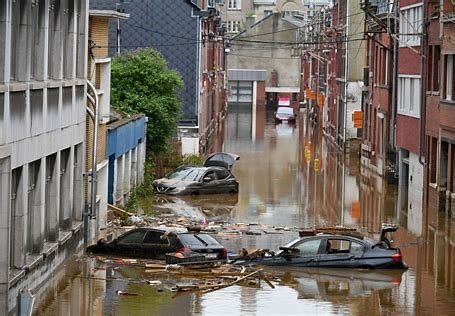The world is ill prepared for disasters, from earthquakes and hurricanes to floods, and, too often, governments only respond after they occur, according to a report published on Tuesday by the International Science Council, which is made up of dozens of scientific organisations.
In 2015, the international community adopted a set of objectives known as the Sendai Framework for Disaster Risk Reduction. The aim was to reduce the number of victims and amount of damage caused by disasters by 2030 by investing more in risk assessment and alleviation, and preparing for disasters, whether earthquakes or catastrophes resulting from global warming.
However, the framework's goals will probably not be met, according to the report, which calls for a rethink on risk management.
Over six billion people affected by disasters since 1990
Since 1990, more than 10,700 disasters - including earthquakes, volcanic eruptions, droughts, floods, extreme temperatures and hurricanes - have affected over six billion persons worldwide, according to figures from the United Nations Office for Disaster Risk Reduction, UNDDR.
The worst offenders are floods and hurricanes, exacerbated by climate change, which account for 42% of the total.
These disasters, which have cascading effects, undermine the hard-earned development gains made in many of the world's regions, the report stresses.
But "while the international community is quick to mobilise after disasters like the recent earthquake in Turkey and Syria, far too little investment and attention is put to long-term planning and prevention, from strengthening building codes to adopting hazard alert systems," ISC President Peter Gluckman said in a statement.
One day's early warning can reduce storm damage by 30%
"The multiple challenges of the last three years have laid bare the fundamental need for greater global readiness for the next disaster," UN Special Representative for Disaster Risk Reduction Mami Mizutori noted. "We need to reinforce our infrastructure, communities and ecosystems now, rather than rebuild them in the aftermath," she stressed.
The report highlights the issue of resource allocation, noting that only 5.2% of aid for developing countries for disaster response between 2011 and 2022 was dedicated to risk reduction: the remainder was allocated to relief and post-disaster reconstruction.
The ISC also stresses the need for widespread deployment of early warning systems, noting that 24 hours' notice of a storm could reduce damage by 30%.

